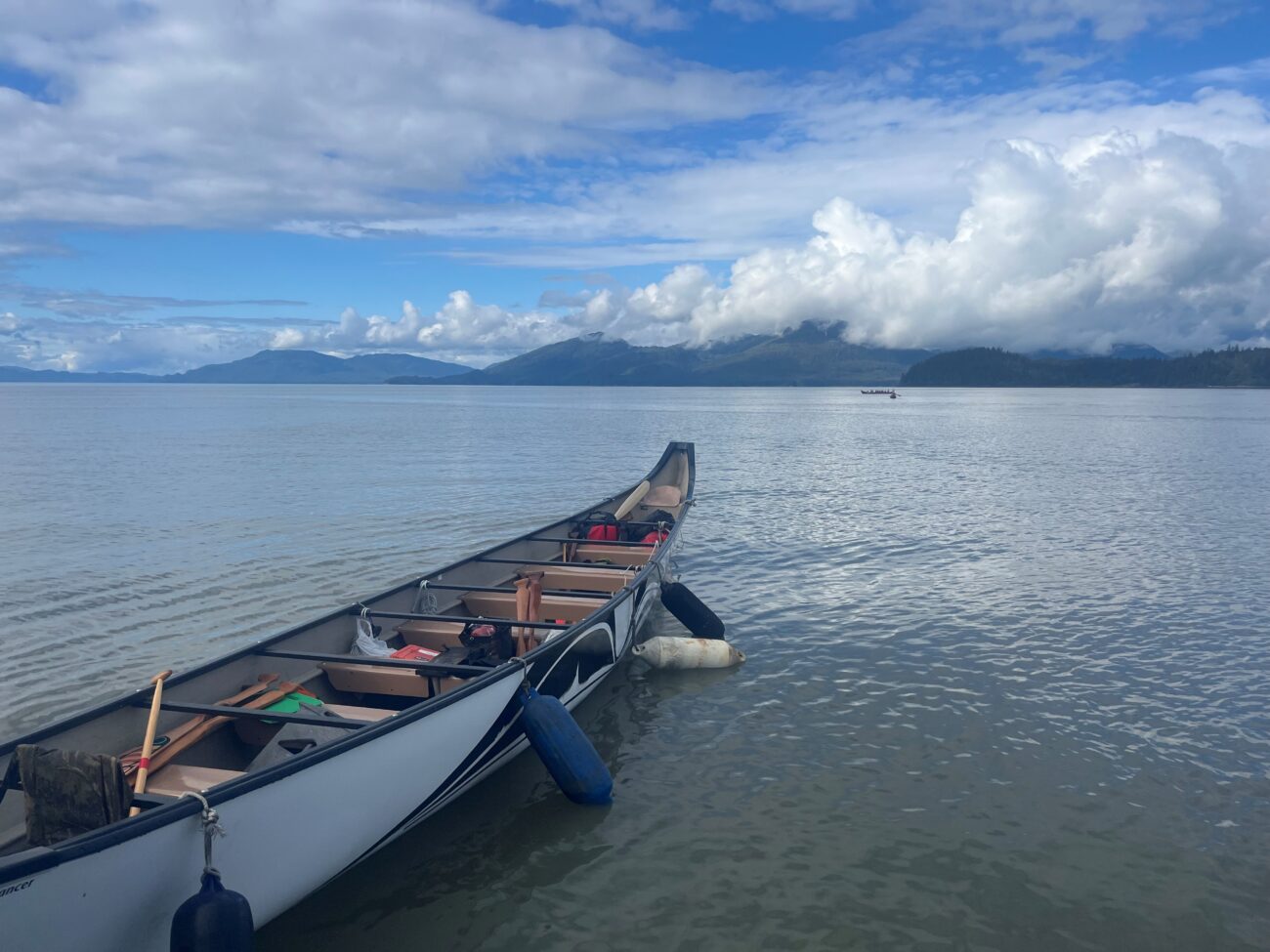
U.S. Army Vietnam era veteran Val Cooday was one of dozens of people who paddled canoes up through Southeast Alaska’s Inside Passage this summer. They were heading to Celebration – a biennial festival in Juneau that honors the region’s Indigenous people. The voyage was healing and inspirational to some participants, including Cooday. To her, the number of paddlers seem to grow more and more each time.
“We the people – Tlingit, Hyda, Tsimshian – are going back to the canoe,” she said. “It’s inspirational. It’s healing for some of us, you know, especially the veterans. It’s wonderful. It’s the culture, the songs, the stories, the people, the humor.”
This was Cooday’s second time paddling to Celebration. Her first time making the trip was in 2018.
Reconnecting
She said the trip to Celebration helps her reconnect with her culture and get to know people and places in Southeast Alaska. And, like some of the other paddlers, the canoe journeys have allowed her to meet all kinds of people from all over the world, including relatives.
“I met quite a few people related and not related, but that’s okay,” Cooday said. “It’s really nice to make that connection and I get inspired because there’s the Tlingits’ and Hyda and Tsimshian stories, the songs, just the the camaraderie.”
One of the people she met on this year’s voyage is her actual nephew from Wrangell — Jerry Knapp.
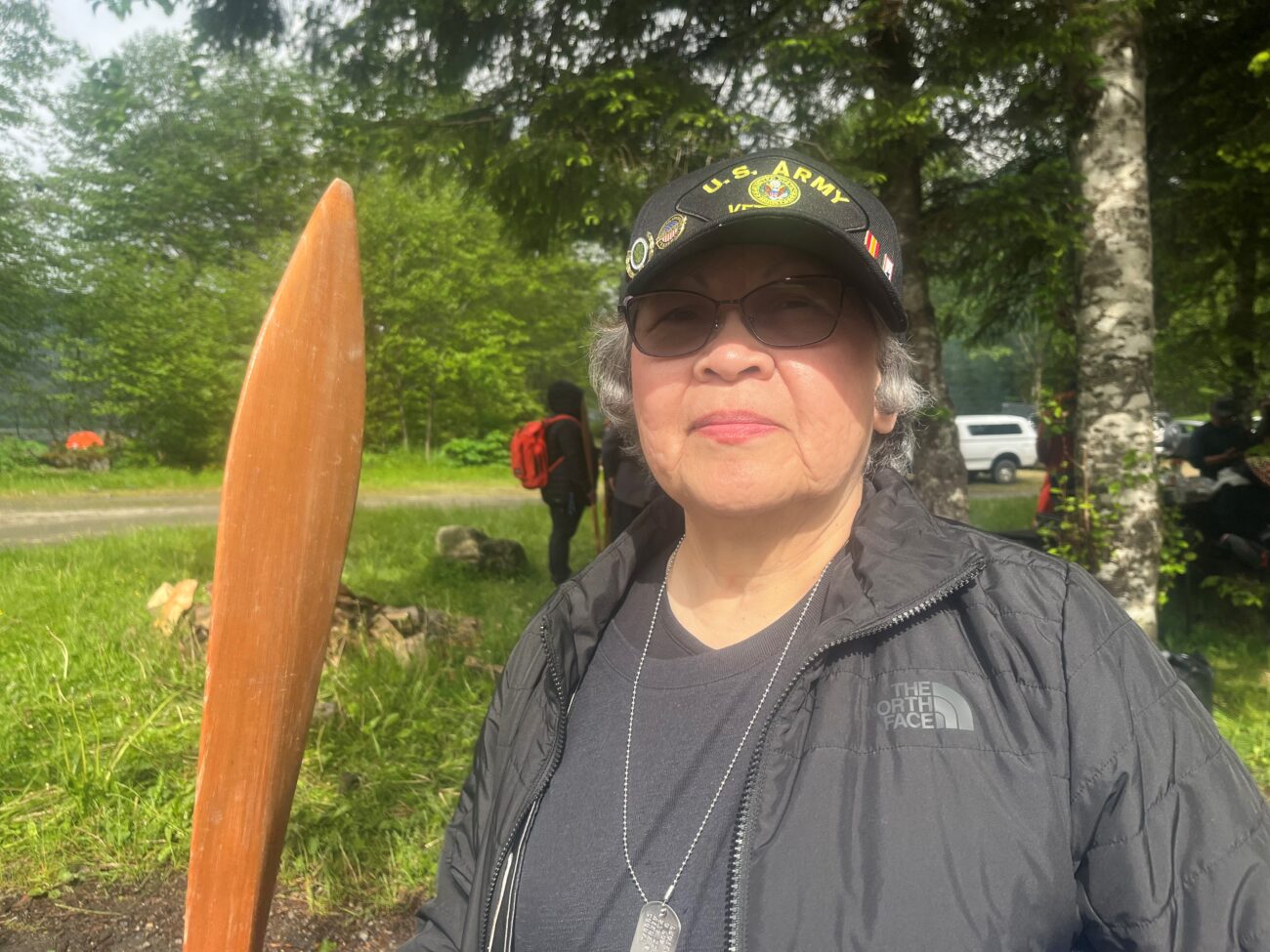
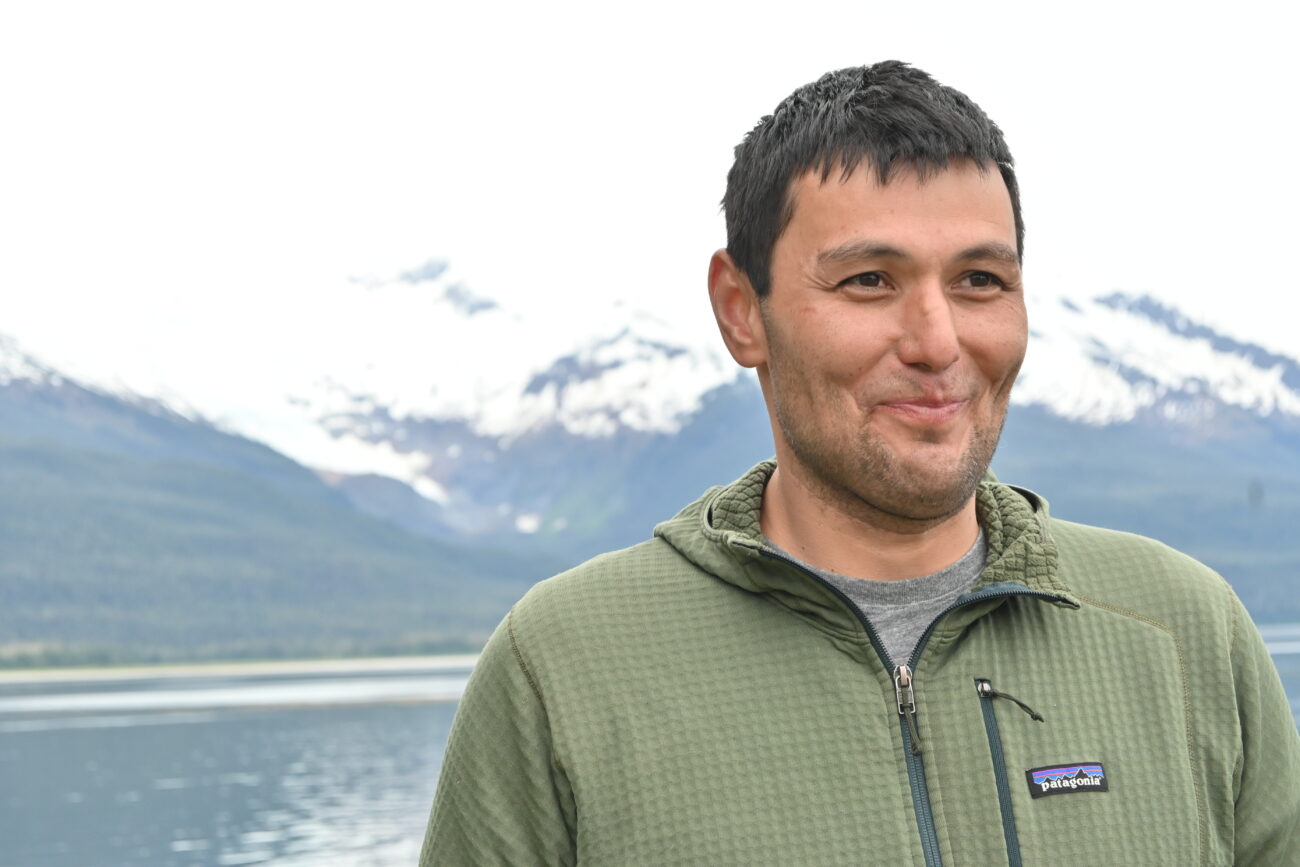
“It turns out, after I asked him what his name was, we were related through my grandfather in Wrangell,” Cooday said.
We’re close to the end of the trip, about a day’s paddle to Juneau, but on this day everyone took the whole day to rest. Some of the paddlers chose to explore the surrounding areas and get up close to the icebergs. But Knapp decided to stay at the base camp on a nearby island, near the warmth of a bonfire. That’s where he’s reflecting on meeting Cooday for the first time.
“…and then found out later on she was my auntie.”
Knapp said, “…I’m just calling her auntie cause I call all the older ladies auntie, and then found out later on she was my auntie.”
He said the trip has been great for rediscovering these types of family ties. He said he didn’t get really interested in his culture until he was 40 years old, and this is his first time paddling to Celebration. But he thinks the biennial journey to Celebration will be a good tradition for him to keep going.
He said that’s because the trip has helped him heal on a spiritual level.
“What I was striving for on this trip was something that my soul I think was yearning for,” Knapp said. “In the beginning, before it started, I was just chomping at the bit to get out of Wrangell to get on that canoe and go on this trip, and sure happy that I did.”
Knapp said it also means a lot to his family that he’s on this journey, especially to his mother.
“She could tell there was something that I was probably looking for that I needed to find,” he said. “Maybe something like this would be the only thing to be able to help that, I guess.”
Remembering
Another paddler, Alicia Marvin, reconnected with a relative on the trip — but, this time, to a relative who is no longer living.
She is from Anchorage, but her family originates from Southeast Alaska.
Marvin said being on this trip reminds her of her father, George, who died about a year and a half ago.
Marvin said a week before he died, he got to see her dancing for the first time with her multi-cultural Alaska Native dance group that has ties to the Southeast, which is who she danced at Celebration with.
“He had gotten to see the regalia sweatshop that we did to try and get my button robe done in time,” she said. “Then he got to be there at the actual performance and then our family went to dinner after. So I’m so grateful for that.”
Marvin said she’s undertook the voyage to Celebration to remember her father.
“Maybe today, I kind of am able to enjoy the scenery more or feel like I’m more present and not just kind of like in the whirlwind,” she said. “I think today’s actually the first time I was really trying to remember him while I was paddling.”
She recalled the time when he took her out to Hoonah, another Southeast community, and they saw humpback whales bubble-net feeding. He also pointed out good fishing spots during that trip. She said if he was here on this journey, he probably would be doing the same.
“…they’re people that we consider our family.”
“He was a veteran,” she said. “It’s just super sweet because some of, they’re not my blood family but they’re people that we consider our family.”
Marvin’s talking about the cooks on the support boat here. They’re brothers, named Brian and Alan DeAsis. They knew Marvin’s dad.
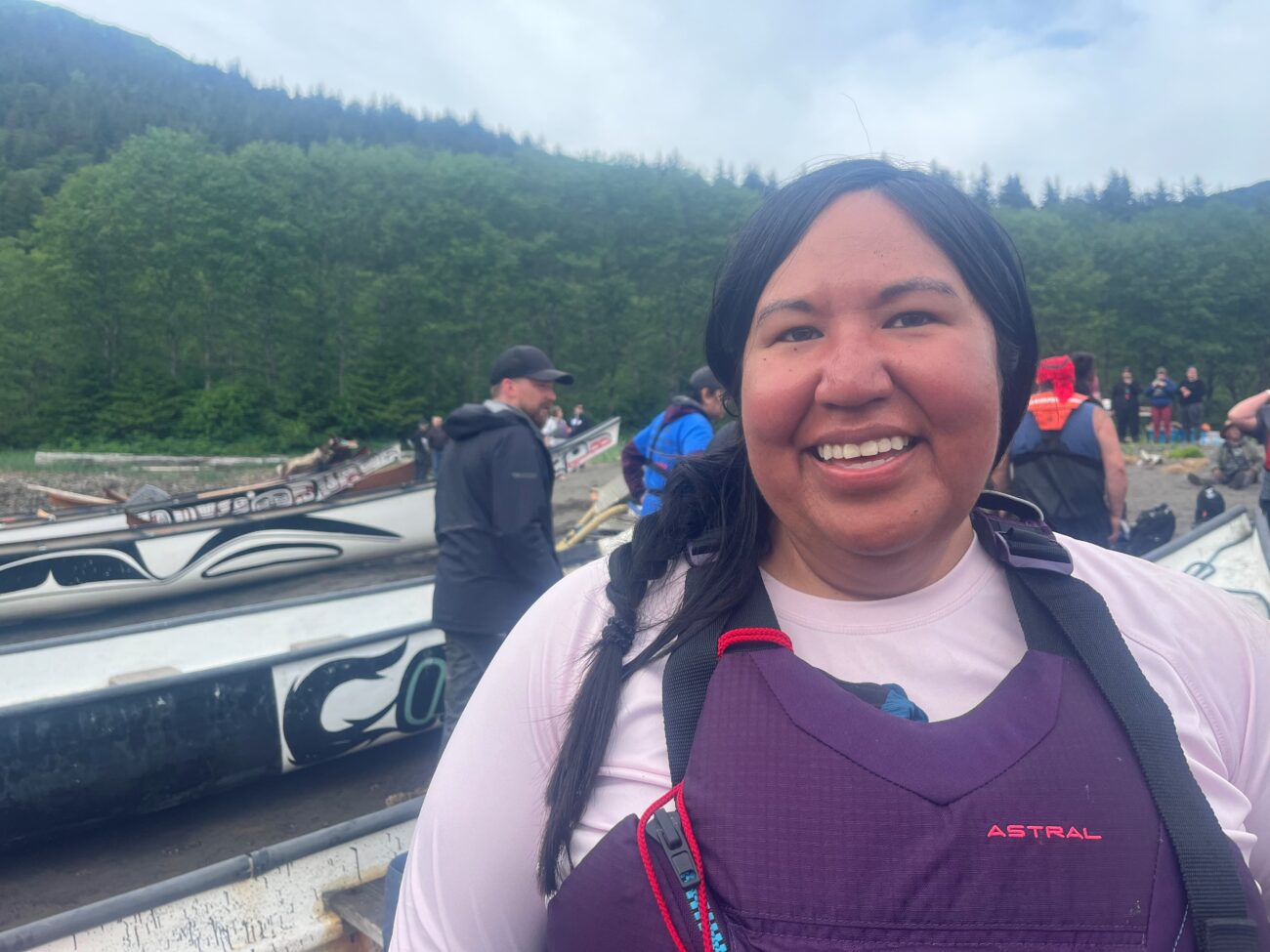
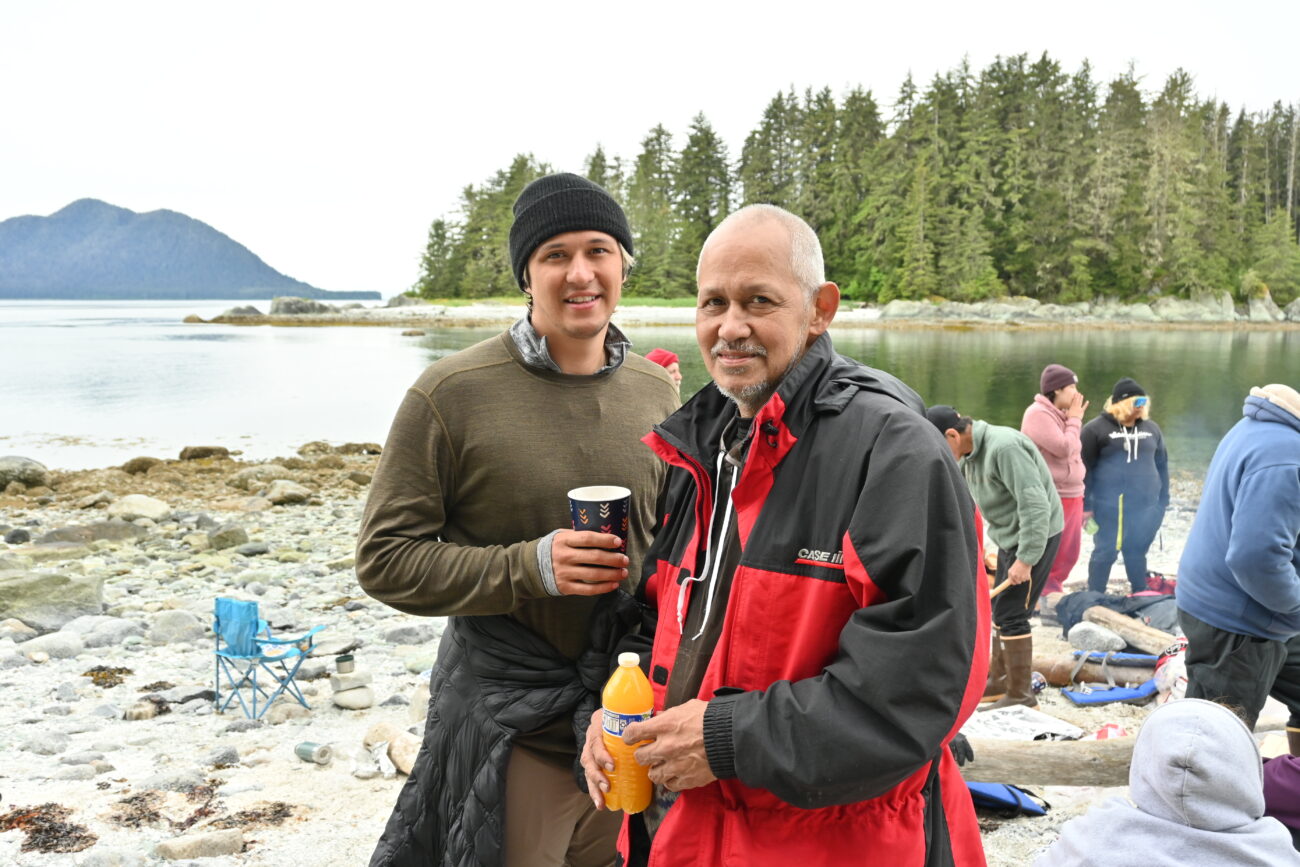
“All throughout my dad’s life, he would say, ‘Oh, they’re just like my sons.’ And they would say the same thing,” she said. “I didn’t know that they were going to be on this journey. So that was super sweet. Has been really nice just to have them be here.”
Brian DeAsis, from Tucson, Arizona, moved away from Alaska when he was 12 and didn’t return for 45 years.
“I left so early on,” he said. “I missed a lot of the traditions – the culture, why things are done the way they are. I’m relearning it.”
DeAsis said in Lingít tradition, uncles raise their nephews. So, he lived with Marvin’s dad for a year and a half. In that sense, he said Marvin’s dad was just like a dad to him.
“I cried when I met her today,” he said. ” I haven’t been back to Alaska for a long time. And my sister is like, ‘That’s George’s daughter right there.’ I said, ‘What?’ (She said), ‘George? George, George Marvin.’ I said, ‘No way.'”
That was the second time he’s served as a cook on the canoe expedition to Celebration. He said the first time was in honor of his father and his other brother, who was sick.
“This time I came for myself because I took care of my father and his last nine years of life, because he was in his mid 80s and he was older,” DeAsis said. “In our tradition, that is what we do. We take care of our elders, our parents.”
He said everyone here on this journey treats everyone else like family, even though most of them had only just met.











